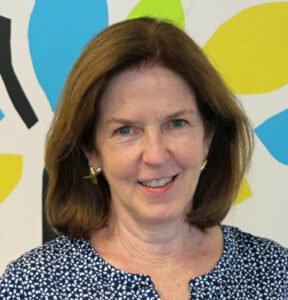 Progressive Voice is a biweekly opinion column. The views expressed are solely the author’s.
Progressive Voice is a biweekly opinion column. The views expressed are solely the author’s.
By Nancy White
Despite Arlington’s prosperity, not everyone is thriving.
Tremendous health disparities exist in our community as evidenced by data showing a 10-year difference in life expectancy between neighboring census tracts. And more than six percent of Arlington residents — about 11,000 — have no access to health insurance due to immigration status or incomes that are too high to qualify for Medicaid but too low to afford subsidized Obamacare plans.
How does an organization effectively address health disparities in a community? Health disparities are variations in the rates of disease between groups of people, often because of factors such as race/ethnicity, socioeconomic status and access to nutritious food and safe, affordable housing.
For 27 years, Arlington Free Clinic (AFC) has had a clear mission of providing free, comprehensive healthcare to low-income, uninsured Arlington adults through the generosity of volunteers and donors. As we emerge from the pandemic and consider our new-normal, I’ve given thought to what has made AFC successful and how our strategic focus will help us continue.
Disciplined focus on mission: Providing healthcare is what we do best, and this focus has allowed the organization to resist the seduction of funding opportunities that would take us off-mission or duplicate services already available.
We considered but said no to opportunities including:
- Medicaid Funding. When Virginia expanded Medicaid in 2019, AFC had an option to become a provider for low-income, Medicaid recipients. After much communication with health safety net partners, county leaders and AFC board members, we decided to refer our Medicaid-eligible patients to local providers and open our doors to accept even more patients who had no options for insurance.
- Social Services. Today, significant funding is available to address “upstream” causes of poor health like homelessness, unemployment and food insecurity. Instead of shifting to provide these services onsite, we’ve opted for a case manager to refer patients to our community partners who are experts in these areas.
We debated and ultimately said yes to others:
- Dental. When a donor shared her dream of funding a dental clinic to honor her father who died of a dental infection he couldn’t afford to treat, AFC carefully considered the need for dental care and the impact on the clinic. After a year-long pilot program in county-donated space and many discussions with AFC board, staff and community partners helped us move forward. This program matched our mission and met community needs because of the important link between oral health and overall health, and because community dental care was inaccessible to our low-income patients.
- Advocacy. As healthcare providers, we are aware of the community conditions impacting our patients’ health. This has given us confidence to be at the table as their advocate for issues ranging from improved digital broadband to easier access to groceries during the pandemic.
Patient-centered medical home: AFC has built a healthcare model where dentists and physicians discuss the need for dental care prior to cancer treatment, where pharmacists and nurses discuss medication adherence and where mental health professionals train staff on topics like behavior change — all under one roof. Having multiple services onsite, with care managed by a skilled nursing team, has made our healthcare more effective.
Community commitment: As leader of this organization for the past six years, I’m the beneficiary of years of strong, mission-focused leadership and thoughtful decision-making by AFC board and staff leaders before me. AFC was founded in 1993 by the medical community with a commitment from its members and from Virginia Hospital Center to support the clinic’s work. This commitment remains strong and ranges from donated healthcare services to community support of our annual fundraising gala.
Volunteer-based care: From specialty surgeons to interpreters, volunteers provide the healthcare so desperately needed.
The pandemic forced AFC away from our strategic focus as we shifted attention toward safety, emergency care and prescription medications, and broader community needs for COVID-19 testing and vaccinations. While I look forward to analyzing what we’ve learned from the pandemic and considering aspects — like telehealth — that should be permanently integrated into our model, I’m even more excited about returning to our core mission of providing healthcare to reduce our community’s health disparities.
Nancy White has been the CEO of the Arlington Free Clinic for the past six years.

